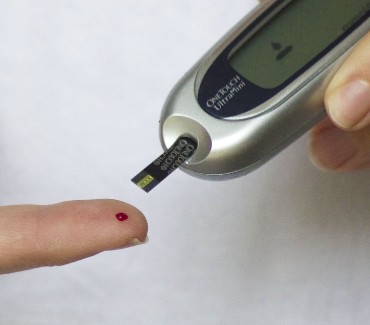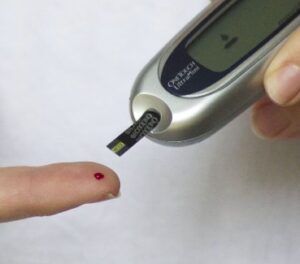Diabetes is a chronic condition characterized by high blood sugar levels, which can lead to complications if left unmanaged. There are two main types of diabetes: Type 1, an autoimmune disease where the body doesn’t produce insulin, and Type 2, a metabolic disorder where the body becomes resistant to insulin. Diabetes affects millions of people worldwide, and its management requires a combination of diet, exercise, and medication.
Managing diabetes requires careful planning of diet. While it may seem overwhelming at first, small changes to your diet can make a significant difference in managing the condition. Incorporating the right food groups into your diet can help regulate blood sugar levels, improve insulin sensitivity, reduce medication needs, and prevent other complications.
In planning a diet for a diabetic patient, it is important to identify the nutrient requirements. Check for other complications and consider the age and gender. As a result of so many conflicting dietary recommendations out there, it’s challenging to know where to start.
That’s why we have compiled a list of the 7 best foods for the management, these foods are not only readily available but also packed with nutrients and scientifically proven to support diabetes management. Whether newly diagnosed or looking to refine your diet, this list will give you the confidence to make informed food choices.
What are the Potential Challenges of Managing Diabetes
Managing diabetes can be challenging in various ways:
- Blood sugar control: Maintaining optimal blood sugar levels can be difficult, especially with lifestyle changes, medication, and insulin therapy.
- Medication adherence: Remembering to take medications or insulin on time and in the correct dosage can be a challenge.
- Diet and nutrition: Following a balanced diet and making healthy food choices can be hard, especially with temptation and social pressures.
- Lack of exercise and physical activity: Regular exercise is crucial, but finding motivation and incorporating physical activity into daily routines can be tough.
- Emotional and mental health: Diabetes management can lead to stress, anxiety, and depression, which can impact overall well-being.
- Complications and comorbidities: Diabetes increases the risk of complications like heart disease, kidney disease, and nerve damage, which can be frightening and challenging to manage.
- Social and cultural factors: Cultural or social pressures may lead to non-adherence to diabetes management plans, making it harder to control blood sugar levels.
- Travel and lifestyle disruptions: Diabetes management can be challenging during travel or when routines are disrupted.
- Continuous monitoring: Constantly monitoring blood sugar levels, food intake, and physical activity can be exhausting and overwhelming.
- Socioeconomic status (SES): This is another important factor that can significantly impact diabetic management. Individuals from lower SES backgrounds may face additional barriers, which may include:
- Limited access to healthcare services and specialists
- Higher costs of medications, supplies, and healthy food options
- Reduced health literacy and education
- Increased stress and mental health concerns
- Limited access to safe spaces for physical activity
- Limited access to diabetes education and support programs
- Higher prevalence of diabetes complications
- Reduced access to advanced technologies, such as continuous glucose monitoring systems
Importance of Diet in the Management of Diabetes
Diet is a critical component of diabetes management, as it has a direct impact on blood glucose levels and long-term health outcomes. According to the American Diabetes Association (ADA), an appropriate meal plan is an essential part of diabetes care, along with physical activity and medications.
Managing blood glucose levels through diet can help prevent complications associated with diabetes, such as cardiovascular disease and kidney disease, while also helping with weight management, which is crucial for optimal health.
When selecting food for diabetic patients, focus on whole, unprocessed foods that provide a rich supply of essential nutrients, fiber, and satiety. This approach prioritizes foods in their natural state, minimally processed, and without added sugars, refined grains, or artificial ingredients. In order to:
- Support optimal health and well-being
- Manage chronic diseases like diabetes, heart disease, and obesity
- Enjoy sustained energy and satiety
- Reduce the risk of nutrient deficiencies and chronic diseases
7 Locally Sourced Foods for the Management of Diabetes
- Leafy Greens: Spinach, ugu, scent leaf, eggplant leaf, water leaf, afang leaf.
- Fruits: Berries (strawberries, blueberries, raspberries, blackberries), African cherry (agbalumo), grapefruits, avocado pear, Nigerian pear, garden eggs, mango.
- Nuts and Seeds: Almonds, chia seeds, cashew nuts, groundnuts, walnuts, flaxseeds.
- Fatty Fish: Salmon, sardines, tuna, mackerel.
- Sweet Potatoes: High in fiber, manganese, and bioactive compounds that enhance insulin secretion and stabilize blood sugar levels. Low glycemic index (GI) makes sweet potatoes a suitable choice for people with diabetes.
- Legumes: Lentils, chickpeas, beans, okpa, fio fio, cowpea, groundnut, soybean.
- Whole Grains: Brown rice, millet, corn, sorghum, acha.
Let’s Dive Deeper into Each of the 6 Best Foods for Diabetics:
- Leafy Green Vegetables:
- Rich in fiber, vitamins, and minerals
- Low in calories and carbohydrates
- Help regulate blood sugar levels and improve insulin sensitivity
- Fruits:
- High in antioxidants, fiber, and water content
- Low in sugar and calories
- May help reduce inflammation and improve insulin sensitivity
- Fatty Fish:
- Rich in omega-3 fatty acids, protein, and fiber
- May help reduce inflammation and improve insulin sensitivity
- Supports heart health
- Legumes:
- High in protein, fiber, and complex carbohydrates
- Low in fat and calories
- May help regulate blood sugar levels and improve insulin sensitivity
- Nuts and Seeds:
- Rich in healthy fats, protein, and fiber
- May help reduce inflammation and improve insulin sensitivity
- Supports heart health
- Whole Grains:
- Rich in fiber, vitamins, and minerals
- Low in sugar and refined carbohydrates
- May help regulate blood sugar levels and improve insulin sensitivity
Conclusion
In conclusion, managing diabetes requires a comprehensive approach that includes an adequately balanced diet, regular exercise, stress management, and adherence to medication regimens. By focusing on whole, nutrient-dense foods, applying moderation in feeding, and staying mindful of socioeconomic factors, diabetic patients can better manage their condition and improve their overall quality of life. Remember, knowledge is power, and by understanding the importance of diet and lifestyle modifications, one can take control of one’s life and live a healthier, happier life.
Reference
American Diabetes Association. (n.d.). Diabetes diet and meal planning. https://www.diabetes.org/diabetes/treatment-care/eating-with-diabetes.





